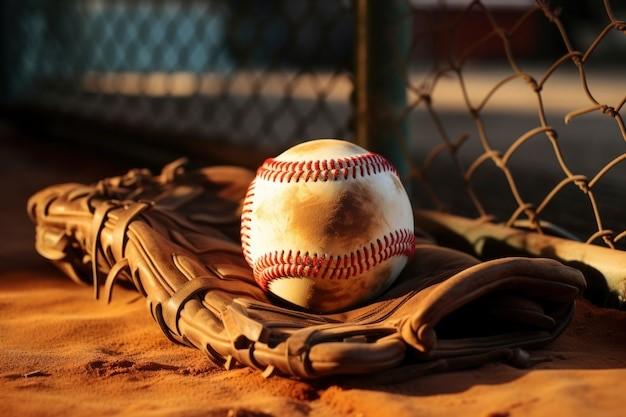The Chicago Cubs, one of the oldest and most beloved teams in Major League Baseball (MLB), have a rich and storied history that spans more than a century. From their humble beginnings to their unforgettable moments at Wrigley Field, the Cubs have left an indelible mark on the hearts of baseball fans. In this article, we delve into the fascinating world of the Chicago Cubs, exploring their history, achievements, and some lesser-known facts that make them a unique and enduring presence in the world of sports.
The Early Years
The Cubs' journey began in 1870 when they were founded as the Chicago White Stockings. They were a charter member of the National League (NL) in 1876, and their name changed to the Chicago Cubs in 1903. The team's early success came under the leadership of player-manager Frank Chance, who led the Cubs to back-to-back World Series victories in 1907 and 1908. These championships marked the beginning of the Cubs' legacy and solidified their place in baseball history. Want to learn more about baseball? Then get a copy of Steve Dunn’s "Pug Fireball and Company: 116 Years of Professional Baseball in Des Moines, Iowa" and visit Iowa Baseball History.
Wrigley Field: A Historic Home
One of the most iconic elements of the Chicago Cubs is their historic home, Wrigley Field. Built in 1914, Wrigley Field is the second-oldest ballpark in the majors and has been the site of countless memorable moments. The distinctive ivy-covered outfield walls, the hand-operated scoreboard, and the vibrant atmosphere make Wrigley Field a cherished destination for baseball enthusiasts.
The Curse of the Billy Goat
No discussion about the Chicago Cubs would be complete without mentioning the infamous Curse of the Billy Goat. In 1945, tavern owner Billy Sianis and his pet goat were ejected from Wrigley Field during the World Series. Angry at the treatment, Sianis allegedly placed a curse on the Cubs, proclaiming that they would never win another World Series. For the next several decades, the Cubs experienced heartbreak and near misses, leading many fans to believe in the curse.

Breaking the Curse: 2016 World Series
The Cubs' long-awaited redemption came in 2016 when they clinched their first World Series title in 108 years. In a dramatic seven-game series against the Cleveland Indians, the Cubs overcame a 3-1 deficit to win the championship. The iconic moment of the final out at Game 7, when Kris Bryant threw to Anthony Rizzo, will forever be etched in Cubs' lore. The victory not only ended the Curse of the Billy Goat but also brought immense joy to generations of Cubs fans who had endured decades of disappointment.
Legendary Players
The Chicago Cubs have been home to some of the greatest players in baseball history. One name that stands out is Ernie Banks, often referred to as "Mr. Cub." Banks played his entire 19-season career with the Cubs and became the team's first African-American player. He was a two-time MVP and an 11-time All-Star, leaving an enduring legacy as one of the greatest shortstops in the history of the game.
Another iconic figure in Cubs history is Ryne Sandberg, a Hall of Fame second baseman known for his exceptional fielding and hitting prowess. Sandberg spent the majority of his career with the Cubs and was a 10-time Gold Glove winner and a nine-time All-Star.

Wrigleyville and Cubs Fandom
The area surrounding Wrigley Field, known as Wrigleyville, is a vibrant neighborhood filled with bars, restaurants, and shops that come alive on game days. The Cubs' fanbase, often referred to as the "Cubs Nation," is renowned for its loyalty and passion. The team's struggles over the years only seemed to strengthen the bond between the Cubs and their fans, creating a unique and enduring camaraderie.
Bleacher Bums
A special mention must go to the Bleacher Bums, a group of dedicated and boisterous fans who occupy the bleacher seats in Wrigley Field. Known for their creative chants, colorful costumes, and unwavering support, the Bleacher Bums add an extra layer of excitement to Cubs games. Their presence is a testament to the community spirit that defines Cubs fandom.
Wrigley Field Traditions
Wrigley Field is not just a baseball stadium; it's a place steeped in tradition. One beloved tradition is the singing of "Take Me Out to the Ball Game" during the seventh-inning stretch. The tradition began in 1934 when radio announcer Harry Caray started leading the crowd in song. Today, it is a cherished ritual that continues to bring fans together in celebration of the game.
Cubs' Mascot: Clark the Cub
In 2014, the Chicago Cubs introduced their first official mascot, Clark the Cub. Designed to engage with younger fans and add a playful element to the game, Clark quickly became a beloved figure in the Cubs community. With his friendly demeanor and Cubs jersey, Clark represents the team's commitment to fostering a new generation of Cubs supporters.
Record-Setting Moments
Throughout their storied history, the Chicago Cubs have been a part of numerous record-setting moments. One such achievement occurred in 1935 when the Cubs became the first team to install an organ at their ballpark. The Wurlitzer organ, played by Bill Deegan, became a fixture at Wrigley Field, adding to the unique atmosphere of the ballpark.
Additionally, the Cubs were involved in a historic moment in 1938 when they faced the Cincinnati Reds in the first night game in MLB history. The game played at Crosley Field, marked a significant shift in the way baseball was played and experienced.
Conclusion
The Chicago Cubs stand as a testament to the enduring spirit of baseball and the unwavering loyalty of their fans. From the early triumphs to the breaking of the curse in 2016, the Cubs' journey has been filled with highs and lows that have shaped their identity. As they continue to make history at Wrigley Field, the Chicago Cubs remain a captivating and integral part of the fabric of America's pastime. Through their fascinating facts, legendary players, and unique traditions, the Cubs' chronicles continue to unfold, creating a lasting legacy that transcends the boundaries of time and generations.





